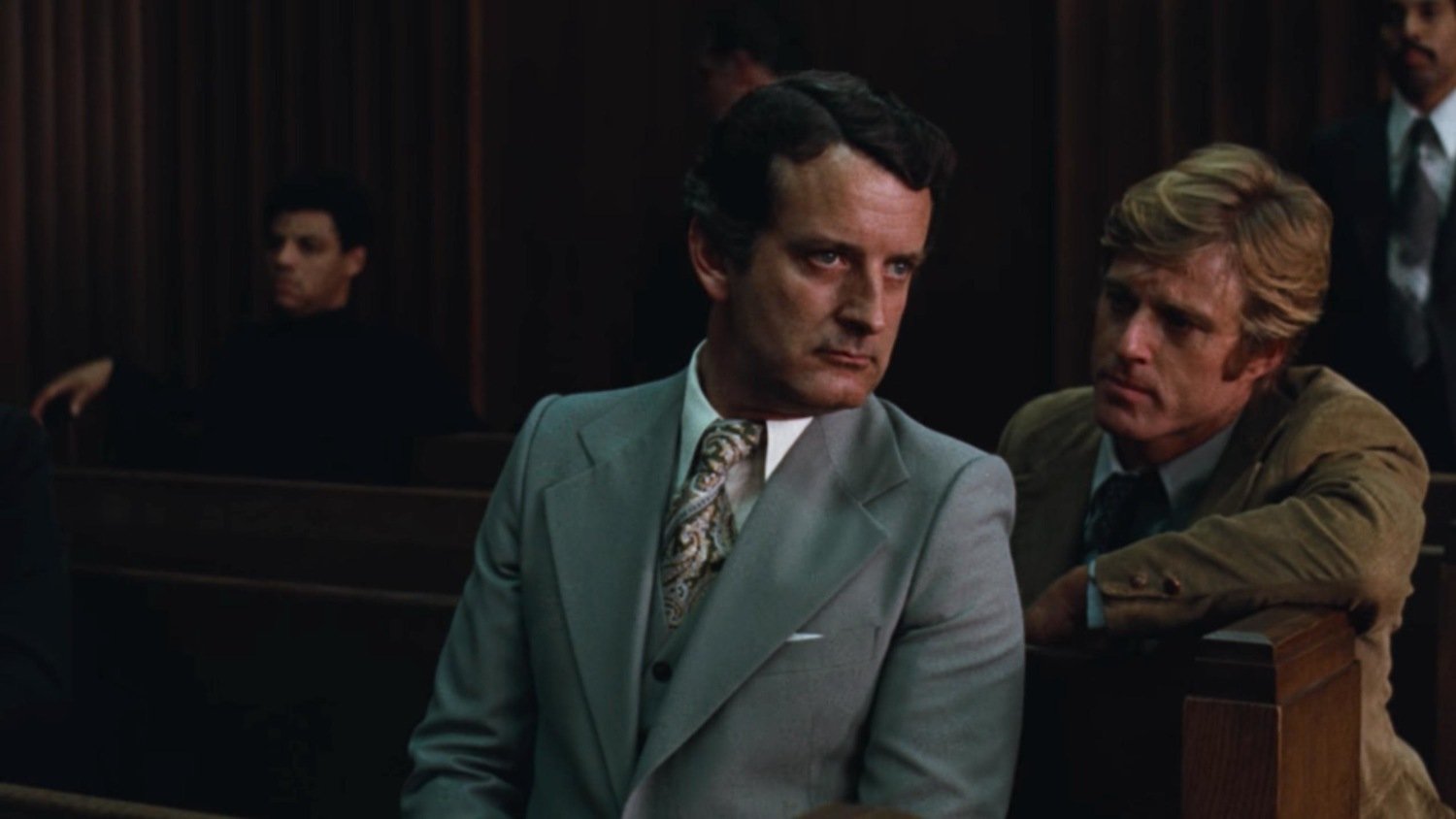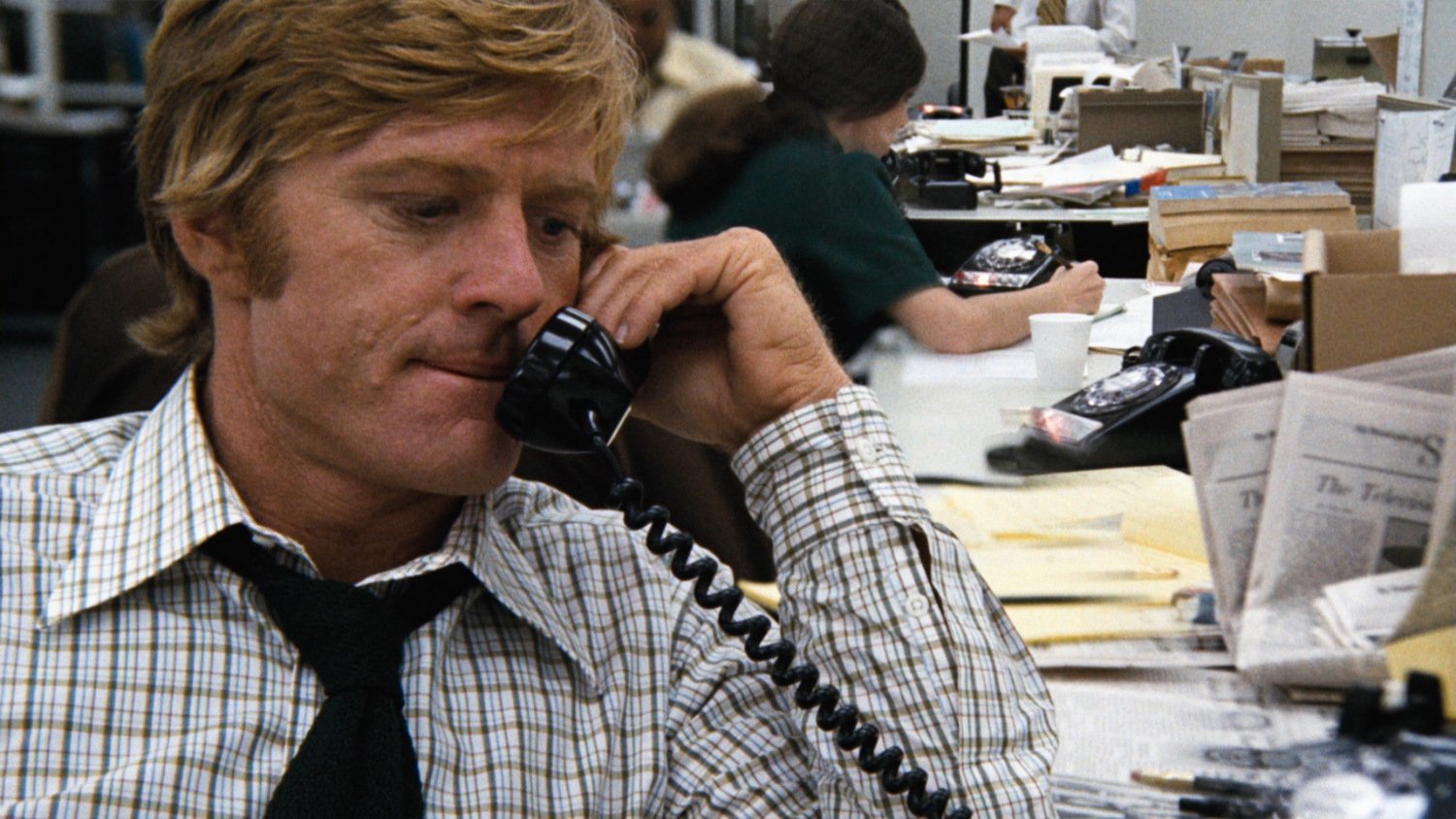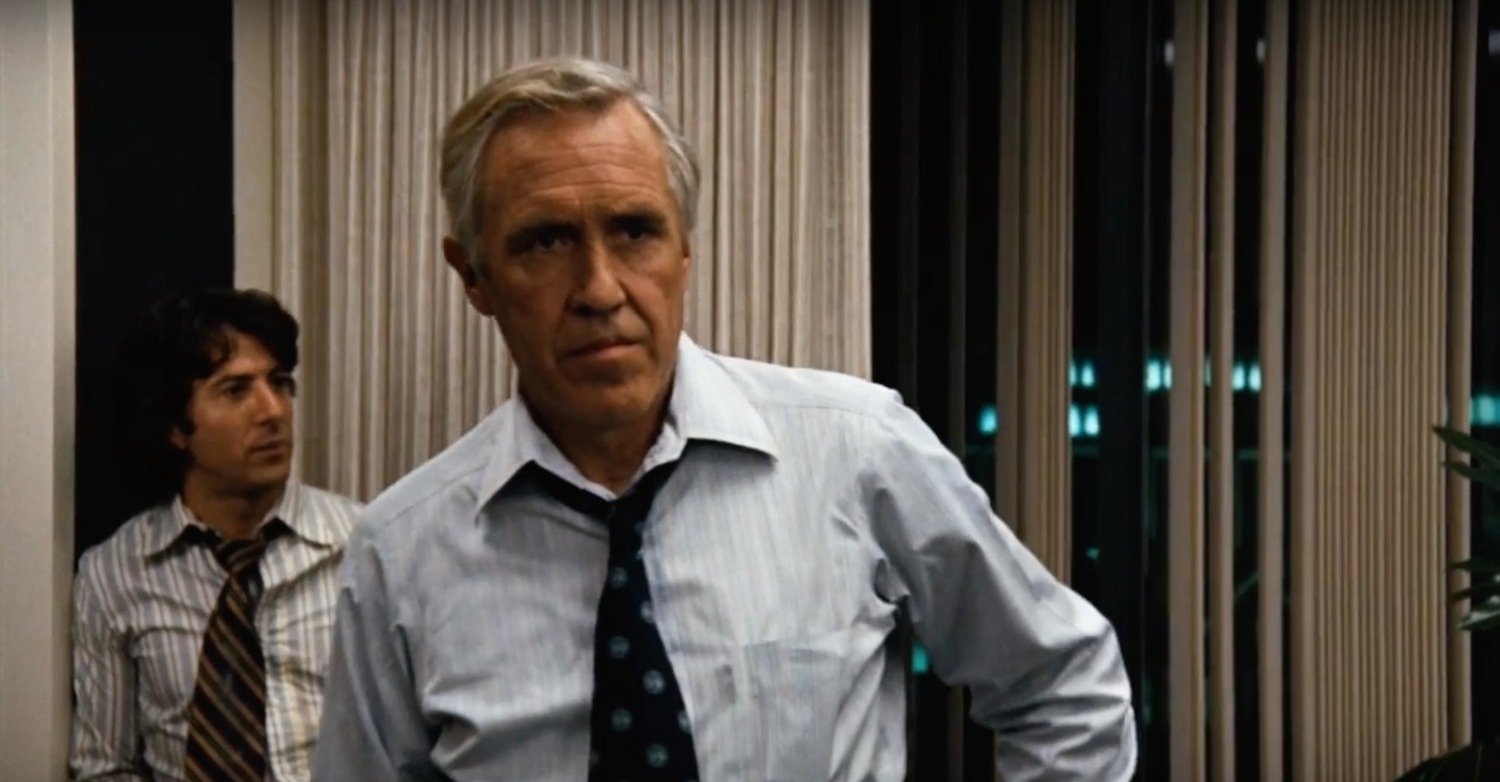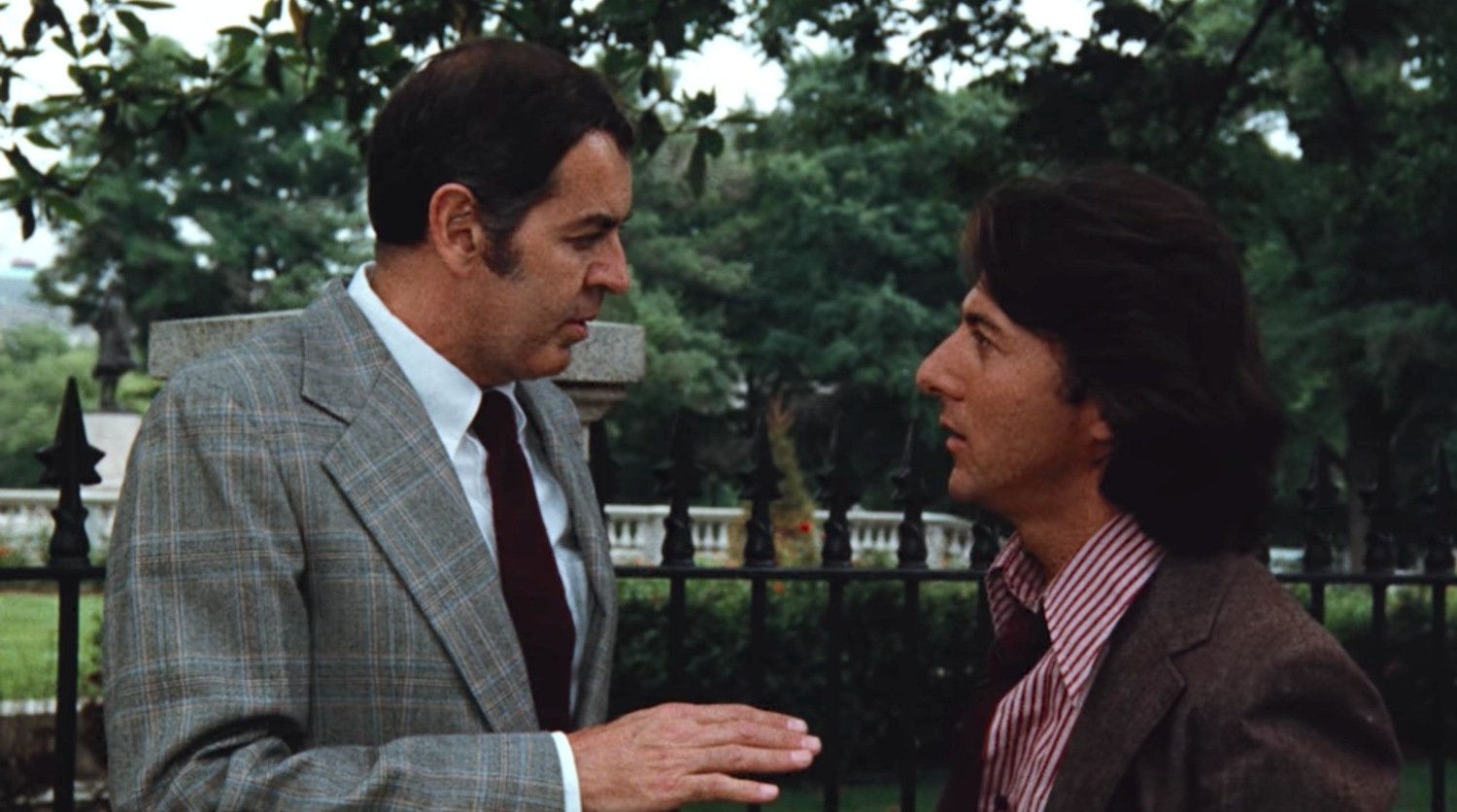All the President’s Men (1976)
Director: Alan J. PaKula
Starring: Robert Redford, Dustin Hoffman, Jack Warden, Martin Balsam
Primary genre: Biography
Secondary genre: Political
Third genre: Drama
Fourth genre: Thriller
Nominated for: Best film, director, supporting actor, supporting actress, adapted screenplay, art direction, film editing, sound
Won: Best supporting actor, adapted screenplay, art direction, sound
Revisiting the films of the American 1970s, one will discover how efforts to convey the feelings of that era were surprisingly, justly and vividly represented on the big screen. Without underestimating the audience’s intelligence, the overwhelming majority of politically intriguing flicks (e.g., “The Conversation” (1974), “Three Days of the Condor” (1975)) featured heavily doses of paranoia, anti-war sentiment and social commentary towards prejudice, racism, discrimination and the economical gaps between classes and sexes translating successfully such themes into moving pictures to a pop culture effect.
“All the President’s Men” is such a movie, a full of complex intrigue biographical political drama that describes in fascinating detail the scandal responsible for bringing down Richard Nixon’s presidency (i.e., Watergate). The adapted screenplay from the 1974 book of the same name expounds the discovery of public service corruption through the lens of two overwhelmed Washington Post journalists whose attempts to get to the bottom of this tale seem of Sisyphean nature; every time they have a lead, they are back at the beginning since no one is willing to talk, open their doors or to even answer their phone. Besides bearing authenticity behind the journalistic proceedings of a major newspaper in a now almost bygone era and the way they publish their stories, the film works extremely well as a thriller leaving the viewer to feel disoriented and paranoid inside a heavy confusing arena where no one seems to be telling the truth.
“All the President’s Men” might have a lengthy running time but its expertly conceived pace keeps things tight and on schedule. There is no clock checking here as the journal duo not only have to find the truth but has to do it before Nixon consolidates “power” so to speak (hence the title) amidst presidential shenanigans, competition with other major news outlets, the own boss’ impatience and a possible threat against their lives. In a reveal that would later shock the American public, the clues are all there, the stage is set, yet the threads which tie them together are practically non-existent and it is up to the persistence of Redford’s and Hoffman’s journalists to get the job done. Two polar opposite personalities which complement each other with smart characterization when the pressure kicks in, Redford and Hoffman have never been better. Used as the audience’s portal to this story, their efforts to reach the end of this rabbit hole take a toll on them, both using different tactics to obtain the information they need from several Republican party linked individuals.
Pakula does a great job at underlying an obscure Washington where shadows hold secrets and looks can mean more than an entire page of written emotional outbursts and confessions; a six minute sequence where Redford’s Bob Woodward is on the telephone trying to decipher clues has Pakula’s camera closing in to his face as the minutes go by highlighting wonderfully the sense of claustrophobia and paranoia. The background (i.e., other journalists, secretaries) could be as well working against Woodward all along and it is precisely that feeling that perpetrates the entire movie and elevates it above other banal entries in the genre. These are exceptional stuff at the height of a cinematic period where movies could be thought provoking and entertaining backed by stellar performances and pitch perfect scripts.
“All the President’s Men” could easily be considered a staple of the American 70s cinema, with Hoffman and Redford at the height of the acting powers. And in our world today, its message should not be taken lightly remaining highly relevant.
Peak 70s American cinema
+Redford!
+Hoffman!
+Pakula’s direction
+Paranoia and distrust everywhere
+Highly engaging and complex story
+Tight pace





